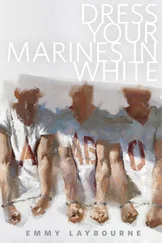"I'll give you a figure and you just point up or down," I said. "Was it a million dollars?"
"I'm not telling you."
"A million and a half?"
I gently prodded her in the middle of the night, hoping she might talk in her sleep. "Was it two million dollars? Seven hundred thousand?"
"I'm not telling you."
A friend phoned, pretending to be an IRS agent, but my mother saw right through it. Tax officials rarely had Jethro Tull records playing in the background. They also, apparently, never called saying, "I just have one quick question."
"But I have to know so that I can tell people."
"That's why I'm not telling you," my mother said.
I was working in a cafeteria then but still honored a once-a-week babysitting job I'd held since junior high. The children despised me, but there was a familiarity, almost a comfort, in their hatred, and so their parents kept me on. The family always had expensive food in their refrigerator: deli-sliced meats and cheeses. Bottles of artichoke hearts. One night as I was being paid, I told the wife that my great-aunt had died and that we now had a Cadillac and a fur lap blanket. "There's money, too," I said. "A lot of it." I thought the woman might welcome me into the fine-refrigerator club, but instead she rolled her eyes. "A Cadillac," she said. "My God, how nouveau riche can you get."
I wasn't sure whatnouveau riche meant, but it didn't sound good. "That little bitch," my mother said when I repeated the story, and then she turned on me for having told the woman in the first place. A week later the Cadillac was gone, sold. I blamed myself, but it turned out my parents had been planning to get rid of it anyway. My mother bought herself a few nice suits. She stocked the refrigerator with cold cuts from the deli counter, but she did not buy a diamond or a beach house or any of the other things we expected of her. For a while the money was used as a bargaining chip. She and my father would argue over some little thing, and when he laughed and walked out of the room — which was how he always ended an argument, behaving as though you were crazy and nothing more could be said — my mother would shout, "You think I can't afford to leave? Just try me, buddy." If a neighbor treated her badly or someone in a shop acted as though she didn't exist, she'd return home and pound on the countertop, hissing, "I could buy and sell that son of a bitch." She had often imagined saying these words, and now that she could, I sensed she was disappointed by how little pleasure they brought.
I think it was Aunt Monie's money that paid my rent when I moved to Chicago to attend the Art Institute. I think it was her money that sent my sister Gretchen to the Rhode Island School of Design and sent my sister Tiffany to a horrible but very expensive reform school in Maine. It went toward getting my mother's children out of the South, which, for her, spelled improvement. The rest of the money was managed by my father, a financial alchemist who turned gold into a mailbox of annual reports that only he could enjoy.
As for the taxidermy, the Canadian museum declined my great-uncle's collection. It seemed too morose to auction off, and so the animals, along with the knickknacks made of their parts, were given to Hank.
"Youwhat? " I said to my mother. "Let me get this straight. Youwhat? " A phone call was made and I was sent a bearskin rug, which for several years sprawled on the floor of my too-small bedroom. It was a crazy thing to make a rug out of, really. Walk one way and you tripped over the head. Walk the other and you caught your foot in the open mouth.
Alone with my bear on the very first night, I double-locked the door and lay upon it naked, the way people sometimes did in magazines. I'd hoped this might be the best feeling in the world, the conquered fur against my bare flesh, but my only sensation was a creeping uneasiness. Someone was watching me, not a neighbor or one of my sisters, but Aunt Monie's second husband, the one I had seen in the portrait. From the neck up he closely resembled Teddy Roosevelt, the wire-rimmed glasses glinting above a disfiguring walrus mustache. The man had stalked wildebeest across the sizzling veldt and now his predatory eye fell upon me: an out-of-shape seventeen-year-old with oversize glasses and a turquoise-studded bracelet, cheapening the name of big-game hunting with his scrawny, pimpled butt. It was an unpleasant image, and so it stayed with me for a long, long time.
In her sophomore year of college Lisa took the rug to Virginia, where it loafed on the floor of her dorm room. It was, we'd agreed, a loan, but at the end of the spring term she gave it to her roommate, who died in a car accident while driving home to Pennsylvania. On hearing the news, I imagined her parents, this couple in their mind-boggling grief, coming upon the bear in the trunk of their daughter's car and wondering what it had to do with her, or anybody's, life.
YOU KNOW YOU'RE YOUNG when someone asks you for money and you take it as a compliment.
"You look pretty cool, can I ask you a question?"
The beggar was a girl in her late teens, a hippie standing outside the convenience store at the North Hills shopping center. She wore a peasant blouse and long, elephant-belled jeans that made it appear as though she had no feet. Granny glasses, amulets, a beaded headband: I couldn't believe that someone so sophisticated was actually talking tome.
I was thirteen that summer and had ridden to the Kwik Pik with my mother, who handed me a ten-dollar bill and asked me to run in for a carton of cigarettes. She watched the hippie ask me a question, watched me run into the store, and watched me stop on the way out to hand the girl a dollar.
"What was that?" she asked when I got back into the car. "Who was that girl?" Had I been with my father, I would have lied, saying she was a friend, but my mother knew I had no interesting friends, and so I told the truth.
"You didn't give her a dollar," she said. "You gave hermy dollar."
"But she needed it."
"What for?" my mother said. "Shampoo? A needle and thread?"
"I don't know. I didn't ask."
"I don't know. I didn't ask." Being mocked by the untalented was easy to brush off, but my mother was really good at imitating people. Coming from her, I sounded spoiled and vacant, like a Persian cat, only human. "If you want to give her a dollar, that's your own business," she said. "But that dollar was mine, and I want it back."
I offered to pay her when we got home, but that wasn't good enough. "I don't want just any old dollar," she said, "I wantthat one."
It was ridiculous to claim an attachment to a particular dollar bill, but for my mother this had become a matter of principle. "It's my dollar and I want it back."
When I told her it was too late, she got out and opened my car door. "Well, we'll just see about that," she said.
The hippie looked over in our direction, and I lowered myself in the seat. "Mom, please. You can't do this." It was touch-and-go for a moment, but I knew she'd stop short of actually dragging me from the station wagon. "Can't we put this behind us? I'll pay you back when we get home. Really, I swear."
She watched me cower and then she got back into the driver's seat. "You think everyone who asks for money actually needs it? God, are you gullible."
The spare-change girl seemed to have started a trend. On my next trip to the Kwik Pik I was hit up by another hippie — this one a guy — who squatted on the ground in front of the ice machine. He saw me approach and held out his leather hat. "Greetings, brother," he said. "Think you could manage to help a friend?"
I handed over the fifty cents I'd planned to spend on Coke and potato chips, and then I leaned against a post, watching this hippie and studying his ways. Some people, the cool people who had no extra money, made it a point to say, "Sorry, man," or "You know how it is." The hippie would nod, as if to familiar music, and the cool person would do the same. The uncool people passed without stopping, but still you could see that the hippie held a strange power over them. "Spare change? A dime? A quarter?" It was a small amount that asked a big question: "Care ye not about your fellow man?" It helped, I thought, that he bore such a striking resemblance to Jesus, who was rumored to be returning any day now.
Читать дальше












